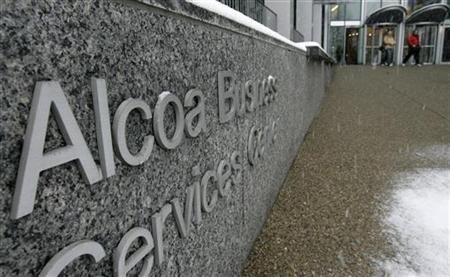U.S. Stocks: Can Earnings Grab Center Stage?

In case investors forgot amid the excitement coming out of Europe, third quarter earnings are about to begin.
Heavyweights like Alcoa (NYSE:AA), Pepsico (NYSE:PEP), JPMorgan Chase (NYSE:JPM), and Google (NASDAQ:GOOG) are set to report this week.
U.S. stocks, however, have been driven by headlines out of Europe lately.
On Monday, they rallied on news that German Chancellor Angela Merkel and French President Nicholas Sarkozy promised to unveil a bailout plan for the Eurozone before November. The plan will include recapitalizing European banks and helping the Greeks.
The S&P 500 climbed 39.43 points, or 3.41 percent, trade at 1,194.89 at 4:08 p.m. ET. The Dow Jones Industrial Average rallied 329.83 points, or 2.97 percent, to trade at 11,432.95. The Nasdaq Composite jumped 3.50 percent.
Last week, the U.S .stock market staged a rally on news of liquidity measures from the European Central Banks and a report from the Financial Times that Eurozone authorities are discussing ways to recapitalize European banks.
Andrew Goldberg, a market strategist at JPMorgan Funds, thinks U.S. markets will continue to be driven by news out of Europe.
Even if it's a good earnings season, it will eventually be overshadowed by...Europe. We're all European right now, he told Bloomberg TV.
Goldberg, however, does not only mean that in the negative sense, that the European debt crisis will drag U.S. shares down. He also thinks measures from authorities that address the European debt crisis could send U.S. shares higher.
Goldberg pointed out that in the last 12 months, corporate earnings of the S&P 500 have risen 15 percent in real terms.
The stock market, however, has dislocated and only risen about 2 percent.
Goldberg said after the 2008 to 2009 global financial crisis, people are wary of worst-case scenarios from macro events like the European debt crisis.
Investors are jittery and staying on the sidelines, said Goldberg.
In the long run, though, company-specific fundamentals are still the most important driver of stock prices, he said.
© Copyright IBTimes 2025. All rights reserved.





















